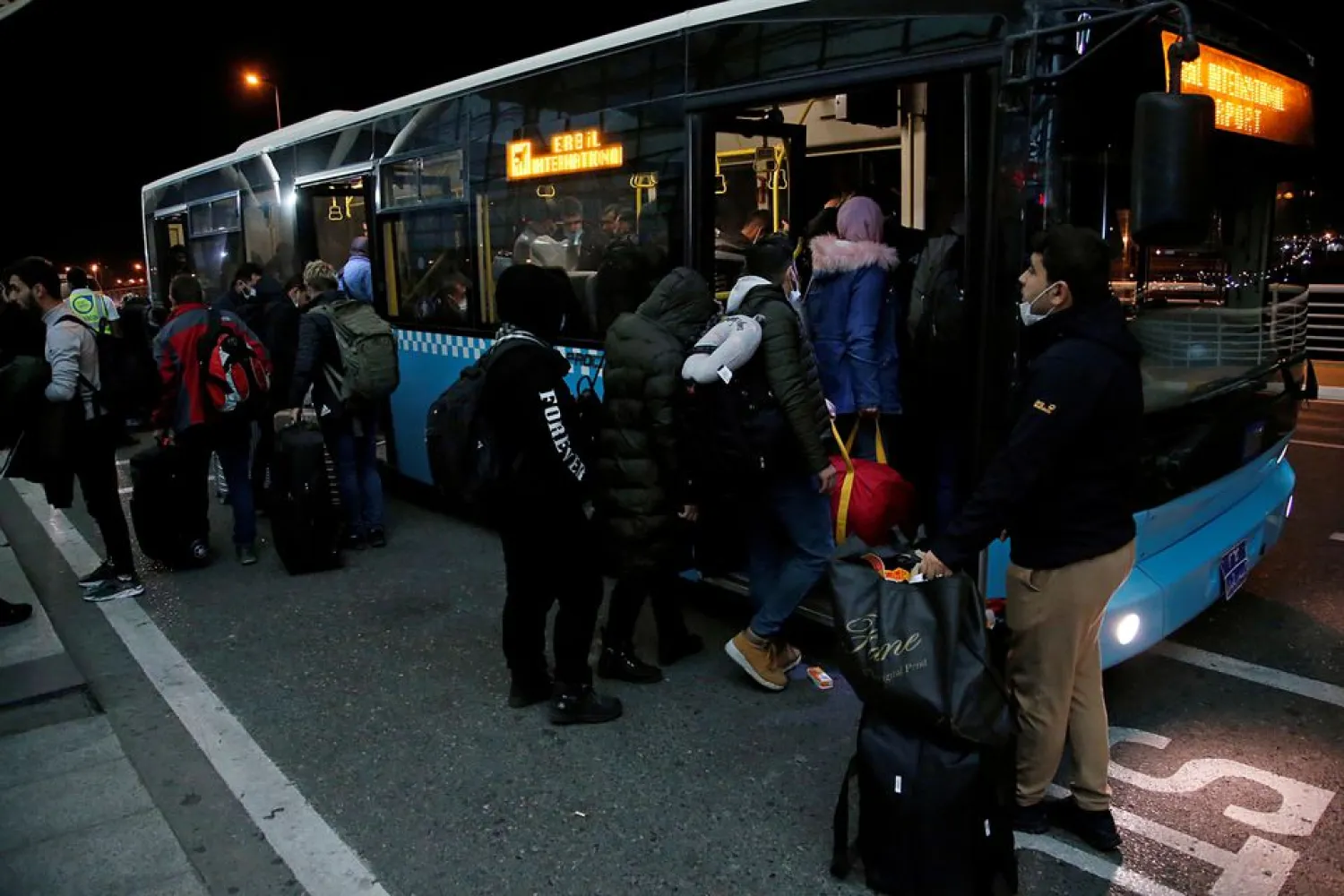Exhausted after several failed attempts to enter Poland amid freezing temperatures, Saeed Jundi and his family of Iraqi Yazidis had just made it back to the Belarusian capital when he said security forces showed up at their rented apartment.
When he confirmed the family was from Iraq, he said they were taken to the airport and deported.
Jundi, his wife and their three children landed in Iraq's Kurdistan region on Nov. 28, two days after Belarusian President Alexander Lukashenko had told migrants at the border with Poland that they would not be forced to leave.
The family was among hundreds of migrants from Iraq and elsewhere flown out of Belarus in recent weeks after failed attempts to enter the European Union - where they were seeking a better future.
Some of them say they had no choice, while others saw little alternative given how hard it was to cross into Poland and because of their treatment at the hands of border guards.
Since last month, Iraq's government has chartered evacuation flights for over 3,100 Iraqis in Belarus.
Hemn Amin, a 29-year-old Iraqi Kurd from the town Khurmal, was among them.
He said Belarusian border guards beat him and that he was pushed back and forth between the Belarusian and Polish border several times. He was then taken to a warehouse in Grodno region where hundreds of other migrants had gathered.
Amin and about 40 other Iraqis booked a plane ticket in order to be allowed to leave.
They boarded buses hoping to get off in Minsk, but were taken straight to the airport, he said.
"We waited in the airport for about five days, in an overcrowded hall guarded by the police," Amin said.
The Belarusian foreign ministry did not respond to a request for comment.
Fouad Hamad, Belarus' honorary consul in Iraqi Kurdistan from where many migrants started their journey, said beatings at the border were "a possibility", but not in cities.
He said migrants in cities would be detained and deported when their visas expired "according to the law" and that he received regular calls from Iraqis asking him to help relatives detained in Minsk for having overstayed their tourist visas.
Safeen Dizayee, head of the Kurdistan regional government's foreign relations in Erbil, told Reuters that none of those aboard the flights chartered by the government had said they were being deported against their will.
"If they overstayed their visas, naturally each country has their rules and regulations," Dizayee said. "Whatever measures Belarus takes, it is their jurisdiction."
He said authorities in Belarus and Poland should investigate allegations of abuse of migrants along the border.
Syrians stuck
Officials and migrants say hundreds of migrants remain stuck in Belarus, having spent thousands of dollars on a journey they had hoped would end in the EU. Among them are Syrians, some of whom do not want to return to their homeland.
"We are being contacted and receive reports about different cases, including of Syrians, some of whom would like to return and some still hope to be able to cross to Poland and some wishing to reunite with their families in the EU," UNHCR Senior Communications Officer, Natalia Prokopchuk, told Reuters.
On Wednesday, private Syrian airline Cham Wings chartered the first evacuation flight for Syrians wishing to return to Damascus, with about 97 passengers on board.
Speaking over the telephone from a small hostel in Minsk, a Syrian man from Halab who asked to not be named said he and 12 other Syrians traveling with him were barely leaving their rooms anymore, fearing deportation.
He said his tourist visa expired nearly two months ago and he had nowhere to go. He has been banned from re-entering Lebanon, where he lived for the last six years, and fears he will be punished if he flies back to Damascus because he has not carried out his military service.
Dozens of Syrian respondents told an online poll set up by migrants that they did not want to go back to Syria from Belarus for fear of retribution from the authorities.
The Syrian government did not immediately respond to a request for comment.
A 27-year-old Syrian who flew from Damascus to Minsk on a tourist visa said he managed to delay serving in the military by continuing his studies. He has now completed his masters degree and fears he will be enrolled by force should he land in Syria.
Meanwhile, the Syrian from Halab said his only option may be to return to the forests between Belarus and Poland to try and cross again.
















